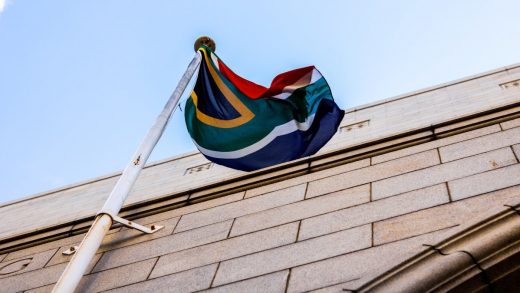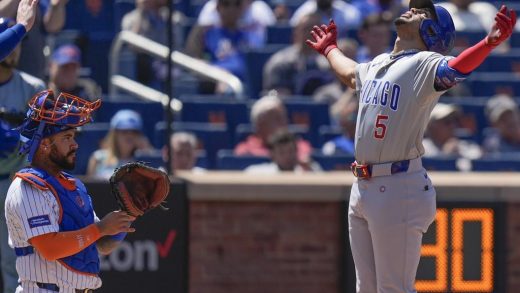Black coaches were ‘low-hanging fruit’ in FBI college hoops case that wrecked careers, then fizzled

NEW YORK (AP) — Book Richardson doesn’t sleep much past 5:30 a.m. anymore.
That was around the time seven years ago that FBI agents pounded on his door, barged in, handcuffed him and dragged him away while his 16-year-old son, E.J., looked on.
“Ever since then, everyone looks at me differently,” the former University of Arizona assistant coach told The Associated Press about his arrest, part of a sting designed to clean up college basketball.
He is one of four assistant coaches — along with a group of six agents, their financial backers and shoe company representatives — arrested in the 2017 federal probe aimed at rooting out an entrenched system of off-the-books payments to players and their families that, at the time, was against NCAA rules.
All four assistants are Black. Of the 10 men arrested, only one was white.
“Low-hanging fruit,” the 51-year-old Richardson said when asked why Black men took the brunt of the punishment. “Who do you see all the time that’s out there? Black assistants. Who is forging the relationships? Black assistants.”
An AP analysis of schools in the six biggest basketball conferences found the ranks of Black assistant coaches have risen from 51% to 59% between 2014 and 2023. But Black men only command about 30% of head-coaching positions.
All the arrested assistants are banned by the NCAA, while the agents and shoe reps saw their connections in the college world vanish.
“Some people in the college space I very rarely talk to because, to them, I’m toxic,” said Merl Code, a Black former rep for Nike and Adidas who served 5 1/2 months in jail in the case.
Meanwhile, most of the head coaches Richardson and the others worked with are white and still have jobs in college basketball.
Richardson served 90 days in jail and says he wears the “scarlet letter F” — for felon. The NCAA booted him out of college hoops for 10 years.
Some see promise in the fact that Black men fill more assistant coaching positions now than in 2014. Others believe they are still the lower-paid, higher-risk jobs in the “talent-acquisition” part of the game rife with turnover and shadowy dealmaking — and landed Richardson and others in jail.
Code said conditions in college basketball mirror America. In his recently published book, “Black Market,” he notes that his alma mater, sports powerhouse Clemson, was like many large southern state universities built on former plantation land cultivated for decades by slaves.
These days, Richardson runs the boys’ basketball program for the New York Gauchos, a venerated hoops proving ground in the Bronx.
Whereas he says he made “2-3 hundred thousand dollars a year” at Arizona, he now clears around three grand a month. He is shaping lives with the Gauchos in much the same way he did as a college assistant — doling out everything from advice to tough love to recommendations about high school and college. Most of the players he works with are Black.
Monique Hibbert, whose son is among the eighth graders Richardson coaches, said the coach brought the parents together to tell them why he ended up in jail. “He said ‘take it or leave it,’ and I said, ‘I’ll take it. Every day,’” Hibbert said.
In many ways, Richardson’s job hasn’t changed much from seven years ago, when he was a top assistant for coach Sean Miller at the highly rated Arizona program. (Miller, who is white, got fired in the wake of the scandal but now has a high-profile head-coaching job at Xavier.)
For decades, college recruiting has involved relationships. Shoe-company reps identify talented players as early as junior high. They connect with college assistant coaches, who stay close in hopes of signing the players. Then there are the agents, who hope to land a piece of the action if a player turns pro.
Underpinning it all is the quiet and, prosecutors said, illegal movement of money to the players and their families, who often come from poor backgrounds.
“These are young men and women who have actual, real-life situations they’re dealing with at a really young age and they’re using their athletic ability to assist their families,” said Code, who remains unapologetic about using shoe-company money to help families.
When the charges against Richardson, Code and the rest were announced, an FBI assistant director proclaimed: “We have your playbook.” The arrests came after an undercover operation that lured the accused into meetings where they picked up envelopes of cash.
Richardson was jailed and banned by the NCAA after pleading guilty to bribery for accepting $20,000 from shoe reps in exchange for steering Arizona players their way.
Richardson admits to using some of the money for a trip to Spain. But most of it, he said, was to pay for a high school recruit and his family to travel to Tucson to watch “Midnight Madness,” opening night of practice in college basketball. The player had already committed to Arizona.
“It wasn’t like I was buying a player,” Richardson said. “I’m trying to get him back on campus”
Richardson now lives on the outskirts of an industry that has, in fact, undergone a seismic change, though not in the way the FBI thought.
New state laws and court rulings have brought about the so-called “NIL” era in college sports — for “Name, Image and Likeness.” Players can now profit through sponsorship deals that begin as early as high school.
Richardson says NIL should stand for “Now It’s Legal” — a nod to the harsh reality that most of those under-the-table payments can be made legitimately now.
The coach still has dreams of returning to college hoops, though he’s aware by the time his ban is over, “I’ll be 60, no one’s hiring me.”
Among the questions Richardson ponders when he bolts awake before sunrise: If he and the rest broke NCAA rules, does that mean they also broke the law? Also, what really changed because of those arrests?
Both the U.S. attorney’s office that prosecuted the case and the NCAA declined comment to the AP on these or any questions about the case.
Richardson has reached his own conclusions.
“Truth be told, out of 10 people who got arrested, nine of those guys were some kind of shade of me,” he said. “And now, none of us are coaching, which we were pretty good at. And we weren’t good because we were cheating. We were good at what we did.”
___
AP sports writers Aaron Beard, Stephen Whyno and Steve Megargee contributed.
___
AP March Madness bracket: https://apnews.com/hub/ncaa-mens-bracket and coverage: https://apnews.com/hub/march-madness
Credit: Black coaches were ‘low-hanging fruit’ in FBI college hoops case that wrecked careers, then fizzled


